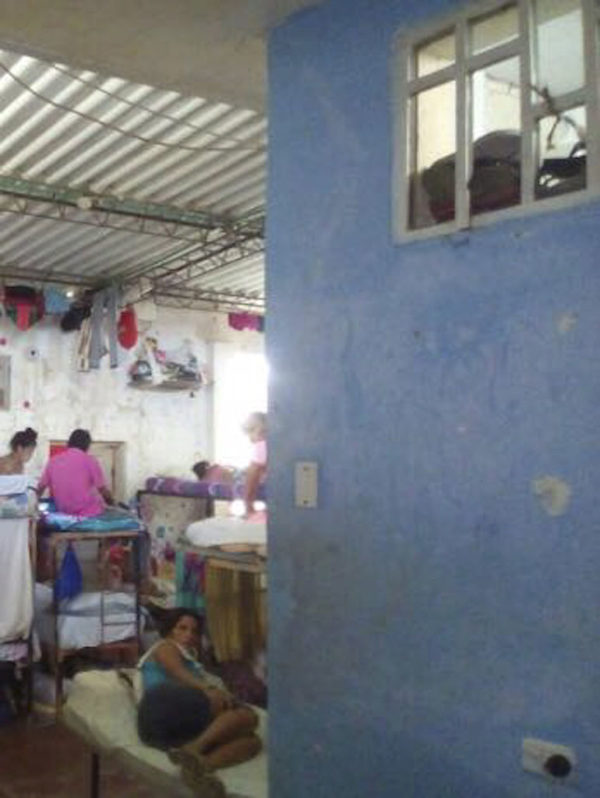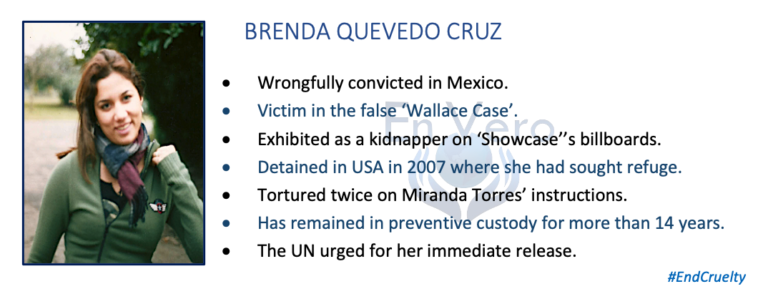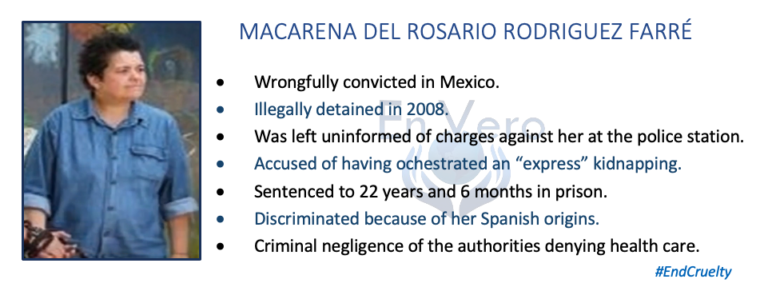Source: Le Soleil
Author: Marc Allard
January 24, 2018
Translation: Jasmine Soso (Original publication in French on December 22, 2017)
On her 9th Christmas spent in a Colombian prison, Judith Brassard received a gift in the form of hope.
Two NGO’s, one Canadian and one Colombian, recently filed an appeal for revision to the Supreme Court of Colombia in order to obtain the release of the Quebec woman being held for a crime she swears she didn’t commit.
The appeal contains new evidence. That which will demonstrate that Ms. Brassard did not call for the murder of her Colombian spouse, Felipe Rojas Gnecco, an orthodontist, member of an influential family, who was assassinated while leaving his office in December 2006.
In the prison in Santa Marta, in Northern Colombia, where she has been incarcerated for almost a decade, Judith Brassard, has good morale. “She’s positive. She seems serene and is actively participating in her defense” emphasizes David Bertet, the president of the organization En Vero, who are working toward her freedom.
After two years of research, Mr. Bertet presented on Tuesday in Bogota, the capital of Colombia, evidence that demonstrates Judith Brassards innocence. Among which, there is the testimony of a “person who has direct knowledge of the assassination of Felipe Rojas Gnecco. Absolutely direct”, specifies the En Vero president, joined by Messenger during a stopover in Panama, while coming back from Colombia.
Favorable context
At the end of this year, Colombian news could also be in favor of Judith Brassards case. The former Supreme Court president, Leonidas Bustos, who had confirmed the conviction of the Quebec woman back in 2013, is at the center of a corruption scandal.
Bustos allegedly organized influence peddling in the Supreme Court and the judiciary. He would pronounce favorable or unfavorable sentences to those who paid for it or didn’t. “And we think that’s what happened in Judith’s case”, says Mr. Bertet.
The appeal for revision in front of the Supreme Court represents a new possibility for Judith Brassards release, who has faced many setbacks in Colombian courts despite testimonies overturning her guilt.
A long saga
Judith Brassard and Felipe Rojas got married in Quebec in the mid 1990’s. They then moved to Santa Marta, where they had two children. At the time of the murder, in 2006, Ms. Brassard was found in Canada, after the spouses had just gotten divorced.
The murderer, Gabriel Ramirez Polo, and his accomplice were arrested a couple months later. They admitted to have been engaged by former paramilitary, John Osorio, the latter being the husband of Katerine Pitre, a maid who Rojas had an extramarital relationship with.
The four of them were found guilty of murdering the husband of Judith Brassard and convicted of heavy prison sentences.

Source: PHOTOTHÈQUE LE SOLEIL
Convened by the investigators as a witness, Ms. Brassard returned to Colombia. She was finally arrested on August 27th 2008, based on new testimonies from the former paramilitary, and of the maid, who both accused her of having called for the death of Felipe, alleging that that the Quebec woman wanted to get her hands on the life insurance of the deceased, and have custody of the children.
Judith Brassard, was placed in preventive detention in the penitentiary center of Santa Marta. In February 2009, she was convicted to 28 years in prison. The sentence was confirmed on appeal in 2010, and by the Supreme Court in 2013.
Osario and Pitre however, retracted later. But the North-Colombian justice decided not to dismiss their false testimonies, and to keep as the foundation of the conviction.
According to the organization En Vero, Felipe Rojas’ influential family openly expressed their desire that Judith Brassard be convicted. They also reportedly carried out intense pressure to have her transferred to a high security prison, located more than 1000 km from Santa Marta, in order to prevent Ms. Brassard from having access to her children, who she sees once a week.
In prison, Judith Brassard lives in a cell with four other women. She’s “considered a “model” prisoner” by the prison management, but after, there are jealousies and small pettiness that can sometimes can go far”, describes David Bertet.
The prison allows her to receive her own food, to avoid her being poisoned by someone who would want to eliminate her.
With the upcoming holidays, and her children’s birthdays, Judith Brassard always feels sad, mentions Mr. Bertet. “That’s why we try to keep in contact as frequently as possible with the phone calls that she is allowed to make. So she knows that people are thinking of her”




